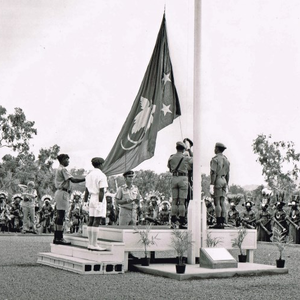About PNG: Manufacturing
The manufacturing sector in Papua New Guinea (PNG) is diverse and dynamic, contributing to the nation's economic development and industrial growth. While PNG's economy is largely driven by sectors such as agriculture, mining, and natural resources, manufacturing plays a significant role in adding value to raw materials, creating employment opportunities, and fostering economic diversification.
Key industries within the manufacturing sector include food processing, beverages, textiles, and wood processing. The production of food and beverages is a notable component, with companies engaged in the processing of agricultural products such as coffee, cocoa, and palm oil. These activities not only contribute to the economy but also support the livelihoods of local farmers.
The manufacturing of textiles and apparel has gained traction in Papua New Guinea. Some companies focus on producing traditional clothing items, reflecting the rich cultural diversity of the country. Additionally, there are efforts to promote the use of locally produced textiles in the fashion industry, supporting both economic growth and cultural expression.
Wood processing is another significant aspect of manufacturing, involving the production of timber and wood-based products. Papua New Guinea is endowed with vast forest resources, and sustainable wood processing contributes to both local and export markets. The industry faces challenges related to sustainable forestry practices and environmental conservation, and efforts are made to balance economic development with ecological considerations.
The manufacturing sector has witnessed growth in response to domestic demand and export opportunities. Local and foreign investments in manufacturing activities contribute to job creation and the development of skills within the workforce. Additionally, efforts are underway to enhance the competitiveness of PNG's manufactured products in international markets.
Challenges within the manufacturing sector include issues related to infrastructure, energy supply, and transportation. Reliable infrastructure is crucial for the efficient functioning of manufacturing activities, and improvements in these areas are essential for sustained growth. The cost and availability of energy are also critical factors influencing the sector's performance.
Government policies and initiatives play a role in shaping the manufacturing landscape. Incentives and support programs aim to encourage investment, innovation, and the adoption of sustainable practices. The government recognizes the importance of a robust manufacturing sector in achieving economic self-reliance and reducing dependence on imports.
The Small and Medium Enterprise (SME) sector is an integral part of manufacturing in PNG. SMEs contribute to job creation, innovation, and the overall resilience of the economy. Government support programs for SMEs, including access to finance and capacity-building initiatives, play a crucial role in nurturing entrepreneurship within the manufacturing sector.
Efforts to promote sustainable practices in manufacturing align with global trends in environmental responsibility. The adoption of eco-friendly technologies and practices is increasingly emphasized to minimize the environmental impact of manufacturing activities. This includes waste reduction, energy efficiency, and the use of renewable resources.
The COVID-19 pandemic has posed challenges to the manufacturing sector, affecting supply chains and market dynamics. However, the crisis has also highlighted the importance of resilience and adaptability within the sector, prompting discussions on strategies for building a more resilient manufacturing industry in the post-pandemic era.
In summary, the manufacturing sector in Papua New Guinea is a vital component of the nation's economic landscape, contributing to job creation, value addition, and economic diversification. While facing challenges, the sector is positioned for growth and sustainability, with ongoing efforts to enhance infrastructure, support SMEs, and adopt environmentally responsible practices.

